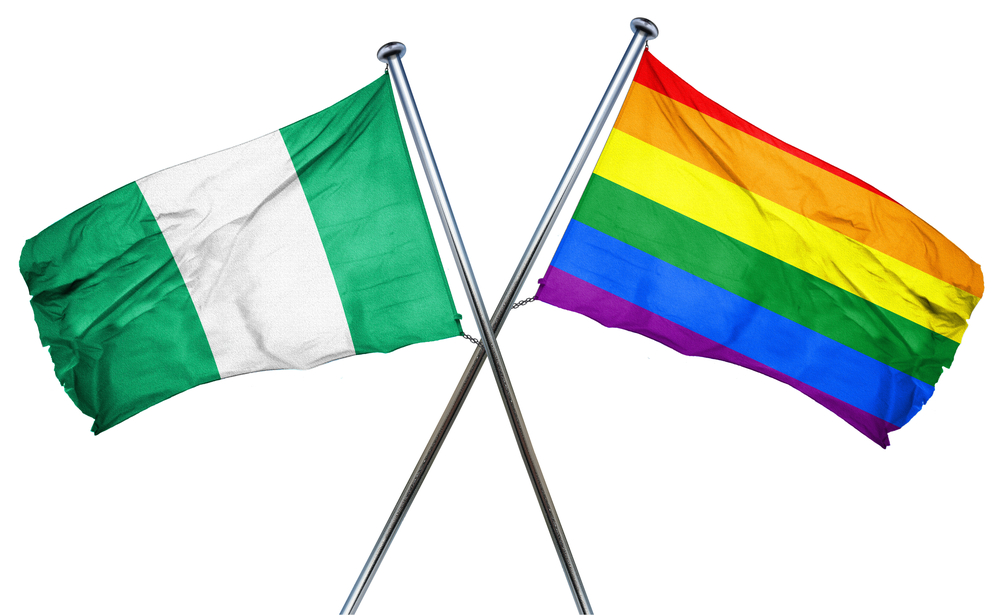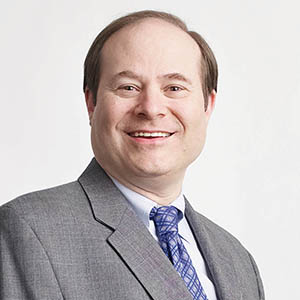A Nigerian's 3-year ordeal shows the importance of pro bono work

By the time it upended his life, Tunde had essentially forgotten about the online article he’d written.
Submitting it for publication was one of the last things he had done before leaving his home country of Nigeria to pursue a master’s degree in America. Between dealing with his visa application, preparing for school and handling all the details that are part of a move halfway across the globe, Tunde had plenty to keep him busy. He had stopped wondering why that last article had never posted, even though other pieces he’d written had been published with little delay.
“I came to the U.S. and began school, and barely two weeks later, Nigeria passed the anti-gay law,” he says. “The next day, they published the article. That was the beginning of the troubles that I had.”
The article described what life is like for gay people in Nigeria. Although Tunde himself is gay, he did not dare reveal that in the article. (His name has been changed to protect confidentiality.) Instead, he wrote as an outside observer describing the experiences of a friend. That distinction did nothing to mitigate the impact of what happened next. The article went viral. The police came calling. And Tunde began receiving death threats.
It soon became apparent that he would not be safe if he returned to Nigeria.
The backlash to Tunde’s article was swift and far-reaching. The article was published online in 2014, shortly after Nigerian President Goodluck Jonathan signed a law criminalizing same-sex relationships. The law banned not only same-sex relationships, but also prohibited supporting any organization that promotes gay rights or even attending a meeting for gay people. Penalties for violating the law included up to 14 years in prison.
In his article, Tunde made clear how difficult life already was for gay Nigerians. He detailed the shame, fear and paranoia that are packed into day-to-day encounters. He also described how utterly alone you can feel in a country that encourages hatred against you. In Nigeria, gay people can be robbed, beaten and blackmailed—and yet, they won’t go to the police for fear of being imprisoned for the crime of being gay. Tunde noted that the new law would make life even harder.
He could not have imagined how true that would be for himself on the other side of the Atlantic. Tunde’s article went viral at a time when Nigerian authorities were carrying out a campaign of arrests to enforce the law. The police showed up at his family’s house brandishing his Facebook photo and demanding to know where he was. Terrified, his mother and sister explained that Tunde had gone to school in America. But his father, a prosperous businessman, wanted to know why his son was a wanted man.
When he learned that Tunde was accused of defending gay rights—and perhaps of being gay himself—the father stopped paying his son’s tuition. He stopped paying his living expenses. Finally, he stopped accepting Tunde’s calls. It has now been more than three years since the two have spoken.

Sarah Ford
“I couldn’t pay for school, so I had to drop out,” Tunde says. Since he was on an F-1 student visa, dropping out also meant losing his legal status in America. “That was the time I began looking for lawyers, especially ones who could take my case pro bono,” he says. “I just knew that was the only option I had.”
Tunde’s story, like so many others, illustrates the critical importance of attorneys taking on cases pro bono publico. Our profession has a proud tradition of serving those in need. The ABA’s most recent empirical study of pro bono services found that 80 percent of attorneys had provided free legal representation to people of limited means or to organizations that support those people. However, the study found that in the previous year, only 36 percent of attorneys had provided at least 50 hours of pro bono service, the amount suggested in the ABA Model Rules of Professional Conduct.
As the ABA notes in the report, unanswered questions remain about “how best to address the vast, unmet legal needs of low- and moderate-income individuals across the country.” Those needs can be especially great in the immigrant community, where the challenges of language, culture and income can make our justice system daunting to navigate. Even immigrants who speak English well and understand their rights may not know where to turn.
Tunde got in touch with an immigrant rights organization, which reached out to a network of pro bono attorneys to find help. That’s where the two of us came in, but only after the search was broadened to multiple states. Tunde lived in Virginia. Several hours away in North Carolina, we were the closest attorneys on the list.
When he finally figured out a way to travel to North Carolina for an intake interview, we met a young man who was well-spoken, thoughtful and unfailingly gracious. He was also desperate. Out of status, unable to work legally and with his meager funds rapidly dwindling, he was facing homelessness and deportation. But the more we learned about his case and the conditions for gay people back in Nigeria, the clearer it became that he was a deserving candidate for asylum.
Our first major goal was to file an application for affirmative asylum to protect Tunde from deportation pending a hearing on his asylum case. After that, slow and painful months went by while we waited for Tunde to receive a temporary work permit so that he could support himself. Part of our role was simply checking in with him, making sure he understood the lengthy asylum process and was doing OK. Many attorneys who provide pro bono services can relate to this; the support you provide often extends beyond legal problems.
Tunde’s case took three years. After the initial intensive period of preparing and submitting his asylum application, there was a long wait. During this period, Tunde worked nights in customer service, continued his creative writing and suffered the homesickness of not belonging anywhere. When we finally received an interview notice, we knew that his long season of uncertainty was almost over. However, we also knew there was a risk that he could be deported.
Members of our firm attended Tunde’s asylum interview. A month later, he went back alone to receive the decision. Standing outside the U.S. Citizenship and Immigration Services building, he called us with a trembling voice to announce the good news: He had been granted asylum. He was safe.
Since then, Tunde has re-enrolled in graduate school. He is eligible for financial aid and has started a full-time paid internship with an international consulting firm. He also continues writing, and he won an award for a short story he authored. “Now I have a busy life,” he says with a smile.
If not for pro bono representation, Tunde is clear about what he would have faced after being deported to Nigeria.

Todd Rubin
“The luckiest I would’ve been would be a 14-year jail time,” he says. “That’s on the positive end of things. On the other extreme, being dead somewhere. If something happens, and someone’s defense to that is the person was gay, that is the end of the story in Nigeria.”
His story ends differently because of our profession’s tradition of volunteering services to those who need them. Yet, as the ABA report showed, there is room for improvement in how much work we provide “for the public good.”
We all face challenges in carving out time for pro bono work. Certainly, any one effort may seem like just a drop in the bucket of overwhelming need. But when we hear from Tunde about how he is building a new life—a life where he is free to be himself in a free country—we don’t have any doubt that pro bono work makes a difference. To one person, it may make all the difference in the world.
It is vital for all of us to play our part in volunteering legal counsel. After all, there are countless cases like Tunde’s where the facts and the law are clear, but without pro bono participation, no attorney would be there to help make the case.
For more information about how you can provide assistance to LGBT immigrants, contact Immigration Equality.
Sarah Ford is an employment and labor attorney in the Raleigh, North Carolina, office of Parker Poe Adams & Bernstein. Todd Rubin is an immigration attorney there, also in the Raleigh office.
ABAJournal.com is accepting queries for original, thoughtful, nonpromotional articles and commentary by unpaid contributors to run in the Your Voice section of our ABAJournal.com. Details of the new policy are posted at “Your Submissions, Your Voice.”
Your Voice submissions

The ABA Journal wants to host and facilitate conversations among lawyers about their profession. We are now accepting thoughtful, non-promotional articles and commentary by unpaid contributors.

